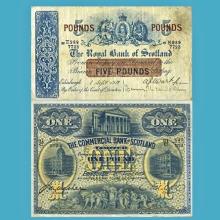
Ahead of Edinburgh’s municipal elections in 1919, the Scotsman reported on a Broughton ward hustings attended by a large audience in the Free Gardeners’ Institute at 14 Picardy Place on 22 October.
The principal themes discussed back then are startlingly familiar today.
Escalating costs
Bailie Watson, speaking of the expenditure in the city, said that there had been tremendous increases during the war. In the matter of child welfare alone, the expenditure had risen from £265 in 1915 to £13,151 for the 1918–19 period, and in 1919 up to the end of the year, for which assessment has been made, the expenditure would be £14,253. The total expenditure in that one branch was £36,210, but, with the aid of grants, that would be reduced to £19,516.
The increase in the expenditure of the city was largely made up in wages, there being an alteration under that heading between 1913–14 and 1919–20 of over £180,000. Part of that sum would be refunded by Government grants, and probably the total would be reduced to almost £100,000.
In 1914–15 the rates of the city were 5s. 8 47-80d., and, though they showed little change till the end of 1917, they after that period began to rise, and now were up to 8s 1d. Compared with other cities, Edinburgh stood well, for even in the North, in small parishes, some of the rates were over £2 in the pound.
An Elector—They’re not going to pay them; they’re gamer than Edinburgh. (Laughter.)

Lack of affordable housing
Bailie Watson, proceeding to speak on housing, said they had estimated that over 10,000 houses were necessary […] Something would have to be done, for child wastage was going on in the slum areas, the infantile mortality in the Cowgate Ward alone being 277 per 1000.
[…] Councillor White, referring to the housing problem, said the authorities had insisted on the erection of houses of three, four, or five rooms. His opinion was that many people would like two-roomed houses, and an endeavour was going to be made to convert the reconstructed buildings into dwellings of that type. (Applause.) The advisability of erecting wooden houses had also been considered, but he understood that the Joiners’ Association had refused to handle the material necessary.
[…] Councillor M’Michael said […] the rents should really be fixed at about £50, but the intending occupants would not want to pay more than £25 or £30. The result would be that the deficit would have to be made up out of the taxes of the country. The financial aspect was a serious one, but as there was no alternative the problem would have to be faced and the burden shouldered.

Paying for the trams
Referring to the tramway question, [Bailie Watson] said he had been asked why they did not have cheaper fares and longer distances. Certainly there had been a surplus over the three months of £7,000, but against that the Council had decided to pay off the tramway debt by £100,000 each year for the next five years. Unfortunately, this year they had had to reduce the sum to £70,000, so that under these circumstances there was not much hope of a reduction in fares in the near future.
[…] Mr Archibald also spoke on the proposed houses. He held that the houses would not be taken up by working men, as they were not only too large, but were most inconveniently placed [Gorgie, Saughton, Craigleith, Wardie, and Abercorn].
At the close of Mr Archibald’s address, the speakers were subjected to a lively heckling.

Cheap fares not possible
Andrew Archibald returned to the fray three days later, addressing a friendlier meeting in Broughton Elementary School.
This time, the Edinburgh Evening News reported:
Mr Archibald, at the outset, remarked that he was afraid that owing to present conditions rates would even go higher, and while he would do his best, if returned to the Town Council, to keep down expenditure, he was not going to make promises that he might not be able to fulfil. The Government scheme for building houses outside the city was, he thought, badly conceived, for a scheme that was contrary to economic law was bound to be disastrous. Building the houses beyond the tramway lines was also a mistake; the working men did not want to live so far out of town. A better policy would have been to build tenements on the vacant land in the city. There was nothing wrong with the modern tenement house, provided they left sufficient open space.
[…] Regarding the tramways, Mr Archibald said it was useless to think that they were going to have cheap fares. It might suit some people to talk about penny fares, but the tramways must be a paying speculation, and the fares, therefore, be such as would cover expenditure. If returned to the Council he would not neglect the domestic interests of the city and the ward, as the City Fathers were inclined to do.
Asked what was to happen to the allotment holders if tenements were built, as the candidate suggested, on the vacant ground in the ward, Mr Archibald replied that no allotment holder would surely want to hold up land for the mere purpose of preserving his allotment.
Spurtle is not so sure about that last assertion … then or now.
----------------------------
@theSpurtle @LAHinds never mind potentially cheaper tram fares; I nearly choked reading about the threat to local Allotments ;-)
what goes round comes round. Its like we are still stuck in time 100 years ago.

